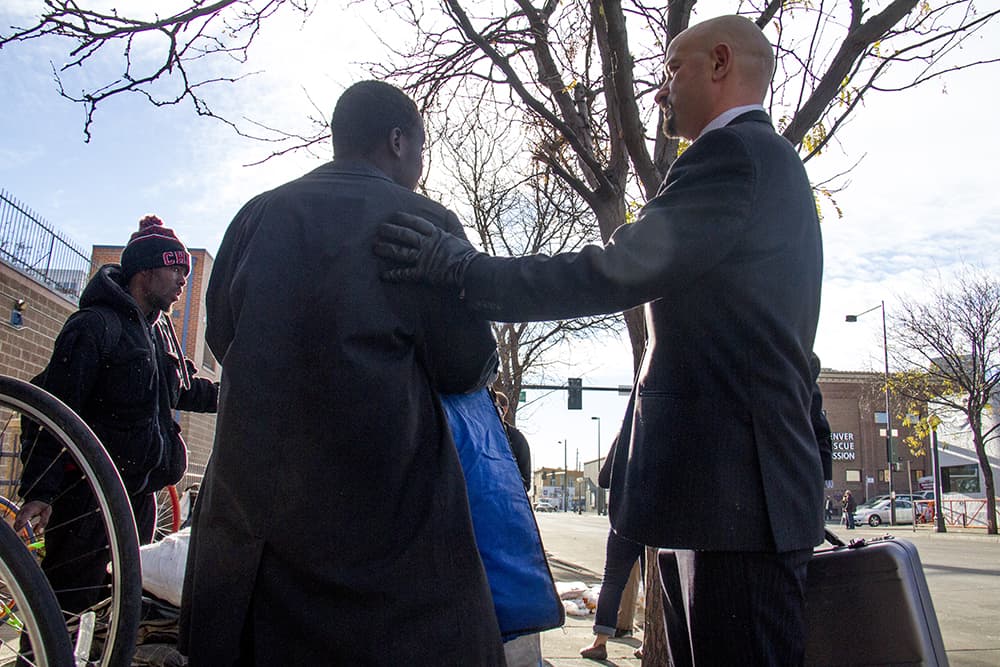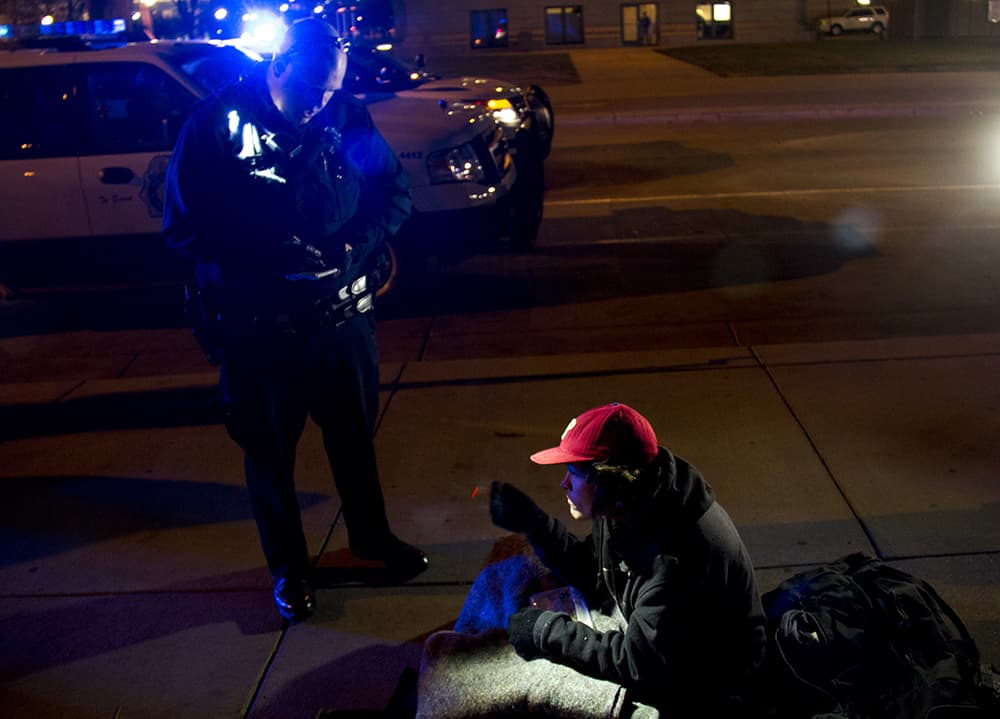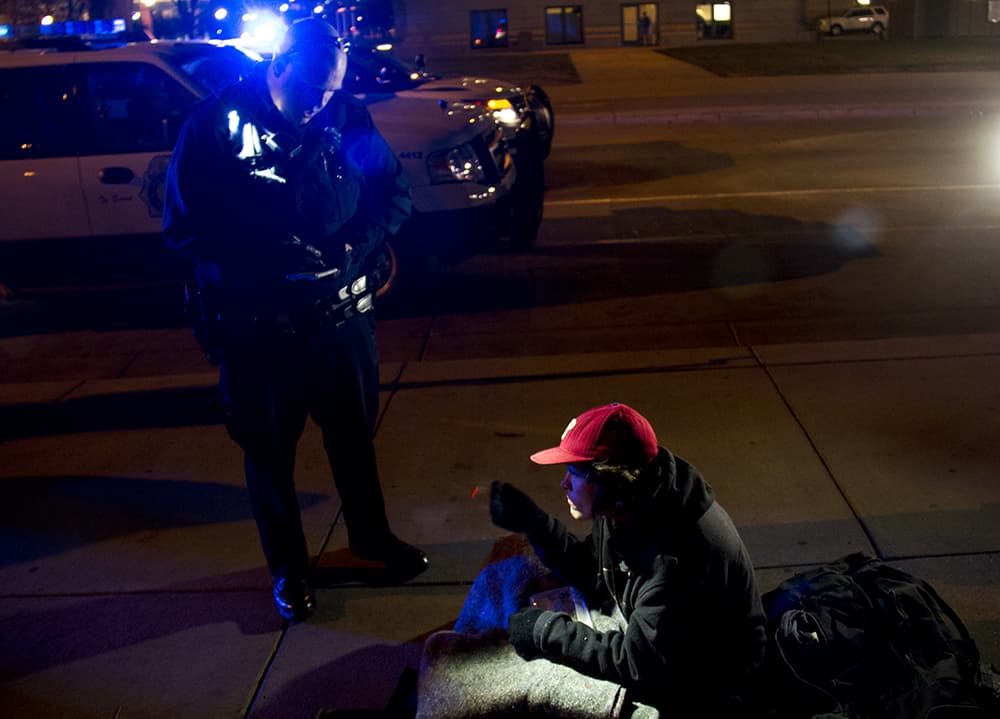
In the five years since Denver passed its ban on homeless camping, Denver police have rarely issued tickets, instead telling people to "move along" to less visible locations. But back in November, three people stood their ground, ignored warnings and got tickets.
These homeless defendants pleaded not guilty, and this week, they're headed to a jury trial in the first real challenge to the city's ordinance.
The camping tickets are ostensibly simple criminal cases, and Jason Flores-Williams, the attorney representing the defendants, says he'll mount a defense that focuses on factual issues around the tickets and how the city implements its ordnance. Nonetheless, he believes Denver's ordinance is unconstitutional and that if convicted, his clients would have a strong basis to appeal.
"Camping is something you do in Rocky Mountain National Park with a 12-pack of beer," Flores-Williams said. "When people are sleeping on the sidewalk with a blanket, that is not camping."
Flores-Williams has also filed a separate civil rights lawsuit against the city over how it handles the belongings of homeless people who are caught up in "sweeps."
Assistant City Attorney David Broadwell said the city believes its ordinance is constitutional and is prepared to make that case.
"The objective of the parties is to strike down the ordinance," Broadwell said. "They are putting the ordinance on trial, and whenever we adopt any controversial ordinance, we know that might happen. That's why we have courts, and we respect that process. We're always prepared to defend our right to have such an ordinance."
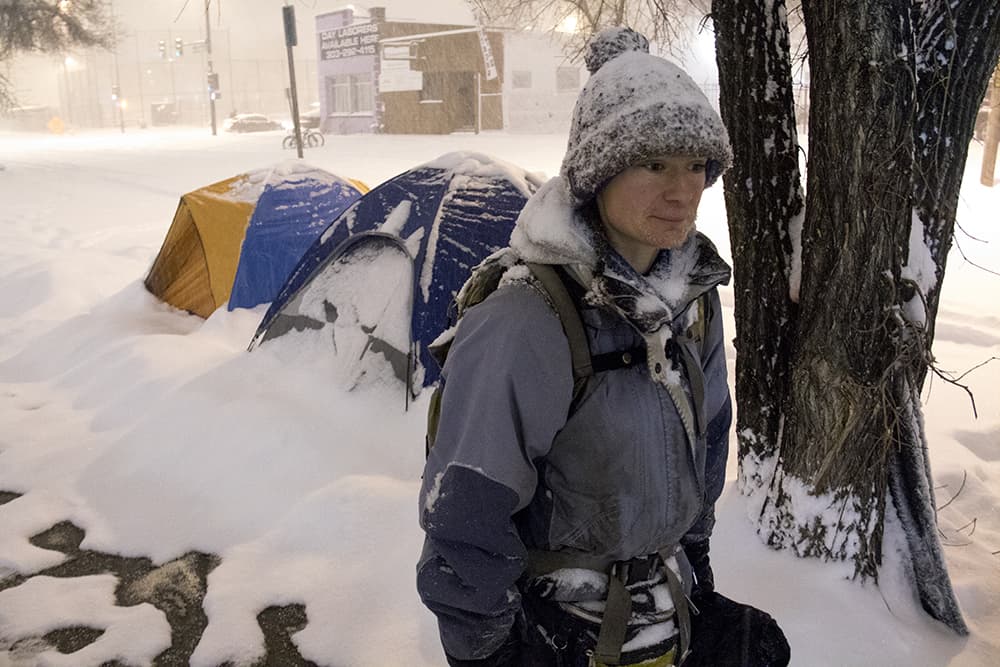
Denver adopted its ordinance after Colorado courts upheld a similar ordinance in Boulder.
Starting in 2010, homeless people in Boulder protested their camping tickets by adopting a coordinated policy of pleading not guilty and asking for trials.
They were represented by defense attorneys working pro bono and by law students at the University of Colorado. They gummed up the municipal court system and forced the city to hire more prosecutors. And they prevailed in a fair number of cases. Sometimes, police couldn't prove beyond a reasonable doubt that the person was sleeping; in others, juries refused to convict people for the crime of using a sleeping bag on nights when the temperature was below freezing.
"In Boulder, we had a pretty sympathetic audience," said attorney David Harrison, who handled many homeless camping trials. "If we could come up with anything they could hang their hat on to find not guilty, they would."
One of those cases became the basis of a constitutional challenge to Boulder's camping ordinance supported by the Colorado chapter of the American Civil Liberties Union.
ACLU of Colorado Legal Director Mark Silverstein recalled that the case, David Madison v. Boulder, presented an ideal set of facts for such a challenge. U.S. courts have not definitively prohibited camping bans, but they have frequently suspended their enforcement and required cities to put additional resources into homeless services when there is inadequate shelter space.
"In the Boulder case, we had a situation that I think very much fit the legal framework," Silverstein said. "He had tried to go to the shelter. It was closed. The temperature got down low enough was that there was visible frost on his sleeping bag. To comply with the law, he would have needed to risk frostbite by sleeping without a blanket or sleeping bag."
Nonetheless, a divided Colorado Supreme Court in 2011 declined to hear the appeal, which allowed Boulder's law to stand. In May 2012, the Denver City Council voted 9-4 to adopt its own camping ban.
The camping ordinance, sponsored by now-Council President Albus Brooks, was spurred as much by a desire to have tools to use against the Occupy movement as it was directly by homeless camping. Nonetheless, proponents said the ordinance was compassionate and would help connect people to services and shelter. Police officers are supposed to provide lists of service providers and offer help getting to shelter when they encounter people camping.
And unlike Boulder, where the homeless shelter closes to all but its transitional housing clients from April to October, Denver has year-round shelter options and a city-supported overflow shelter that can accommodate just about everyone, albeit in Spartan conditions.
It's very rare for Denver police to issue tickets under the camping ordinance today.
Instead, they issue "move-along orders," which have prompted homeless activists to respond with "Move along to where?" People have a variety of reasons for not wanting to go to the shelters. It's noisy. It's dirty. There are bed bugs. Couples cannot stay together. You can't take your pets in. There's not enough storage space, and you might end up losing important personal possessions.
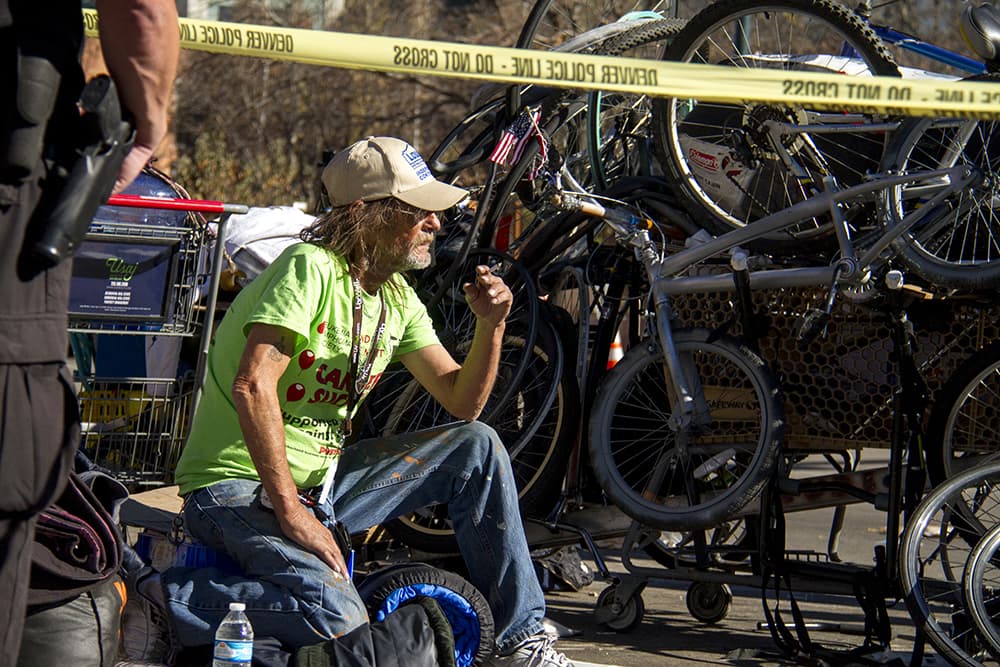
In late November, police and Denver Public Works crews had repeatedly cleared the Arapahoe Square area outside the Denver Rescue Mission, and homeless people had repeatedly moved back in. Some were open about resisting the city's policies by camping in these public areas. On Nov. 28, Denver police officers wrote camping tickets to two people, Jerry Burton and Randy Russell, who had previously received warnings.
Later that night, homeless people associated with Denver Homeless Out Loud set up camp outside the Denver City and County Building to draw attention to their plight. Most of the people moved on after getting warnings, but three people -- Burton, Russell and Terese Howard -- did not leave and got tickets.
City officials have focused on the public nature of the protest -- Denver Homeless Out Loud broadcast it on Facebook Live -- and the refusal to leave, while homeless activists have responded that they had to sleep somewhere and would have been sleeping outside no matter where they went. They just happened to be in a prominent location.
"Do you consider the assertion of constitutional rights forcing the government's hands?" Flores-Williams asks. "I would put it the other way: The government and the judicial system is focused on the wrong priorities."
It's not clear how far this case could go.
The ACLU isn't currently involved in this case. And while the ACLU doesn't comment on litigation it hasn't yet filed, Silverstein said its lack of involvement shouldn't be seen as a comment on the merits on this case, one way or the other.
"When there is insufficient shelter space to accommodate the homeless population, it amounts to cruel and unusual punishment to criminalize the homeless population," Silverstein said. "You have to sleep, and if you don't have a place to sleep, you have to sleep outside."
In December, after video circulated on social media of police officers taking blankets from homeless people in wheel chairs, Mayor Michael Hancock announced that police would not take sleep gear during the winter, and enforcement seemed to ease up, though the camping ban technically remains in effect. The city also returned sleeping gear to Burton and Russell that it had seized and held as evidence in their camping cases.
But in a series of pre-trial motions that relate to whether Flores-Williams can bring in larger questions about the city's homeless policies, he did not prevail. The case this week will focus on the narrow question of whether the city can prove the defendants violated the letter of the law. While Flores-Williams is hoping for acquittals at this stage, he doesn't think this trial will be the end of the issue. And because the courts reflect broader social attitudes, he hopes higher courts will see the issue differently than they did in 2011.
"I think maybe something has changed in the culture where people are really questioning whether this camping ban is moral and why the local government is putting so much energy into prosecuting this case," he said. "I think that if and when it reaches the Supreme Court, the Supreme Court will have a different take on it based on changes in attitudes."
